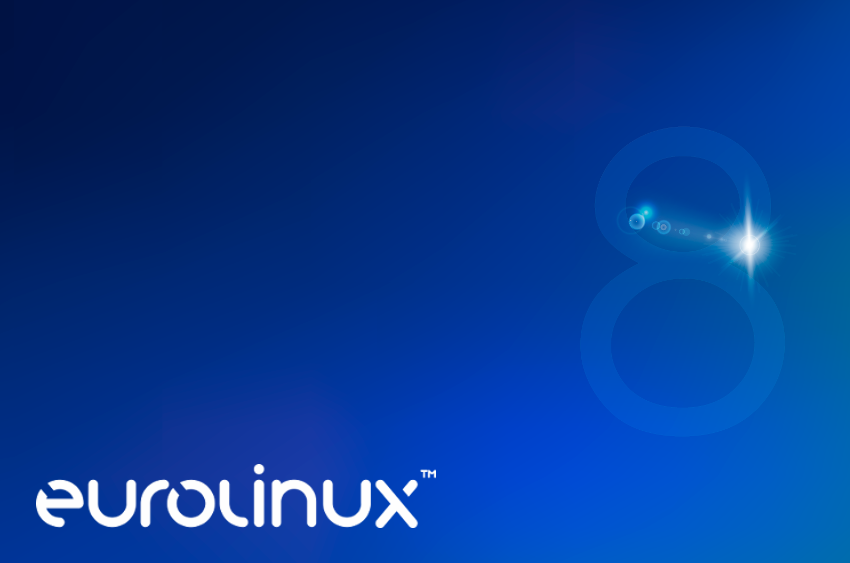
Differences between EuroLinux 7 and 8 – changes and novelties in the 8th version
The new version of EuroLinux brings a lot of changes compared to the previous one. In this article, we present the differences between these releases and describe the features exclusive for EuroLinux 8.
The new version of EuroLinux brings a lot of changes compared to the previous one. In this article, we present the differences between these releases and describe the features exclusive for EuroLinux 8.
EuroLinux 8 – Features
EuroLinux belongs to the Enterprise Linux family of products, which also includes distributions derived from the same source code, namely Red Hat® Enterprise Linux, Oracle® Linux and CentOS. Based on open standards, EuroLinux 8 provides a set of tools for creating, launching and sharing container applications in the basic version. It helps streamline container creation and eliminates the need for bulky, less secure container daemons. The use of the Wayland server significantly improves the security and speed of the graphical environment – in the eighth version, it is still possible to choose the X.Org server (backwards compatible). The way packet filtering is handled has been simplified. In version 7 of EuroLinux, four tools were used for this purpose: iptables, arptables, ip6tables and ebtables. In version eight, they have been replaced with one tool – nftables.
The version 4.18 of TCP network stack used in EuroLinux 8 provides higher performance, better scalability and greater stability. Two new congestion control algorithms are available: BBR and NV, which offer lower latency and higher throughput. New modules, application streams, and profiles greatly increase the flexibility of the target environment. EuroLinux 8 also means greater security and automation of the DNS service, better use of disk space in XFS, the ability to record terminal administration sessions, create snapshots for physical servers and full integration with Microsoft Active Directory.
EuroLinux 7 vs. EuroLinux 8
The most important differences between versions 7 and 8 are presented in the table below:
max. RAM (x86_64)
EuroLinux 7: 12 TB
EuroLinux 8: 24 TB
Default file system
EuroLinux 7: XFS
EuroLinux 8: XFS
Filesystem size (for XFS)
EuroLinux 7: 500 TiB
EuroLinux 8: 1024 TiB
Hardware architectures supported
EuroLinux 7: AMD 64-bit, Intel 64-bit
EuroLinux 8: AMD 64-bit, Intel 64-bit, ARM 64-bit
Standard repositories
EuroLinux 7: el-server-7-x86_64
EuroLinux 8: el-server-8-x86_64-appstream, el-server-8-x86_64-baseos
Package management
EuroLinux 7: Yum based on version 3.0.x
EuroLinux 8: DNF (YUMv4)
Yum version eight is based on DNF technology, and Yum provides backward compatibility with YUM v3 used in earlier versions of EuroLinux. The yum command is a symbolic link to the dnf command.
Time synchronization
EuroLinux 7: ntp, chronyd
EuroLinux 8: Only chronyd. Discontinued support for obsolete ntp.
Compiler
EuroLinux 7: GCC 4.8.2
EuroLinux 8: GCC 8.2.1
Default packet filtering
EuroLinux 7: Daemon firewalld uses iptables as the default backend.
EuroLinux 8: Daemon firewalld uses nftables as the default backend. nftables replaced the previous iptables skeleton. nftables supports both IPv4 and IPv6.
Default databases
EuroLinux 7: MariaDB
EuroLinux 8: MariaDB 10.3, MySQL 8.0, PostgreSQL 9.6 or 10, Redis 5.0
Cockpit
EuroLinux 7: By default, it is not installed and must be installed by enabling optional repositories
EuroLinux 8: Cockpit is now installed by default and the required ports are automatically opened in the firewall
Cockpit is a web-based tool available as a panel for system administration and management. The web interface of the service can be started with the url: http://
Managing virtual machines
EuroLinux 7: virt-manager
EuroLinux 8: virt-manager, cockpit
Package Manager
EuroLinux 7: RPM 4.11
EuroLinux 8: RPM 4.14
RPM has gained significant improvements. Some of the new features include:
– possibility to install debuginfo packages in parallel
– support for packages larger than 4 GB
– support for file triggers
– use the SHA-256 hash
– stricter spec file parser
– changes in the approach to macros
Print logs
EuroLinux 7: CUPS logs are stored in the /var/log/cups directory
EuroLinux 8: All types of CUPS logs are centrally stored in the systemd daemon along with logs from other programs. CUPS logs can be accessed using the journalctl command
Programming languages
EuroLinux 7: Python 2.7, PHP 5.4, Ruby 2.0
EuroLinux 8: Python 3, PHP 7.2, Ruby 2.5, Node.js 10
Development tools
EuroLinux 7: OpenJDK 8 as default Java Development Kit (JDK), Java 8 as default Java version
EuroLinux 8: OpenJDK 8, OpenJDK 11, IcedTea-Web and various Java tools (i.e. Ant, Maven, Scala)
Containerization
EuroLinux 7: Available through additional repositories
EuroLinux 8: Podman as a fully supported tool (compatible with Docker). Also available: buildah, skopeo and runc. Docker provided through an additional repository
Default Display Server
EuroLinux 7: X.Org
EuroLinux 8: “Wayland” – used by Gnome Display Manager
If the support for your subscriptions expires or you are thinking about a new project using the solutions included in the latest EuroLinux, you are more than welcome to contact our company.